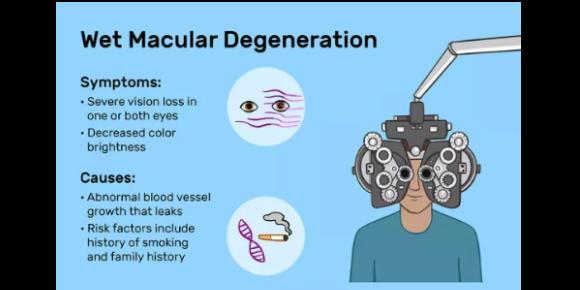
What Are the Early Warning Signs of Macular Degeneration?
Macular degeneration is a common age-related eye disorder that can lead to reduced vision. Early symptoms can be subtle, which is why regular eye checkups are critical.
Macular degeneration, or age-related macular degeneration (AMD), is a degenerative eye disease. It happens when a critical layer of cells beneath the macula breaks down and slowly disappears. The macula, a small region located right in the center of your retina, is essential for crisp, precise vision.
Damage to the macula can cause central vision loss. It doesn’t affect your peripheral vision — what you see on the side when you’re looking straight ahead.
Macular degeneration is common, affecting 19.8 millionTrusted Source U.S. adults over age 40. It’s the most common cause of adult blindness and can affect one or both eyes.
There are two types:
- Dry macular degeneration: Dry macular degeneration involves the accumulation of waste products and photoreceptor debris, called drusen, that form under the thinning macula. It’s common, affecting 85–90% of people with macular degeneration.
- Wet macular degeneration: Wet AMD is a less common type that occurs when new blood vessels form under the retina. The vessels can leak fluids and blood, disrupting the complex retinal anatomy, which may result in macular scarring.
The early warning signs of macular degeneration are not obvious. In fact, many people only notice issues when their vision becomes blurry. That’s why it’s important to regularly visit an eye doctor, who can diagnose the condition early.
What are the early signs of macular degeneration?
The early warning signs of macular degeneration can be subtle or nonexistent.
Any early and intermediate macular degeneration symptoms are always for dry macular degeneration. If it progresses, the symptoms can be related to either dry or wet types.
Early symptoms
Often, early macular degeneration causes no symptoms. That’s why it’s difficult to catch it in its early stages without seeing an eye doctor.
If early symptoms do occur, you may have difficulty seeing in low light. Your eyesight may appear far more blurry than before, whether seeing near or far. Colors may not seem as bright as before. This is all caused by a gradual loss of central vision.
However, these signs might not be noticeable to some people. Visiting an eye doctor for regular screenings is the best way to know whether you have macular degeneration.
Intermediate symptoms
Intermediate macular degeneration might cause some vision loss or vision changes. But again, in many instances, there might be no noticeable symptoms.
Late symptoms
In the later stages, macular degeneration may cause symptoms such as:
- lines looking wavy or crooked
- blurriness in the center of your vision
- seeing blank spots
- increased difficulty seeing in low light
- colors appearing less bright
Severe changes may signal the development of wet macular degeneration. If this occurs, it will often cause sudden and significant loss of central vision.
